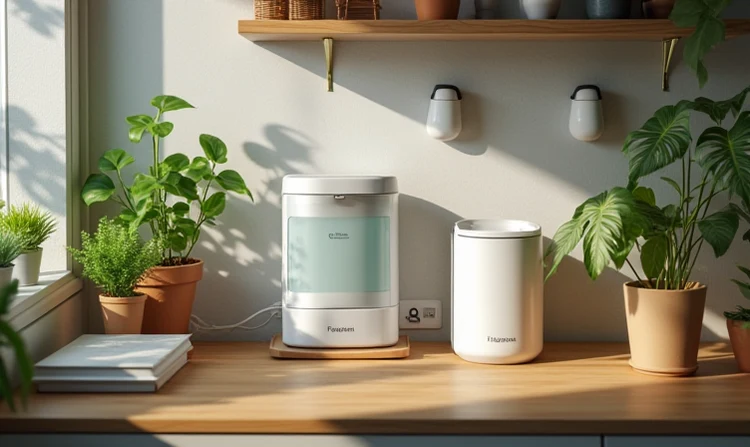🌿 Sustainable Consumption: Practical Recommendations
Each of us can contribute to preserving the environment by making conscious choices in favor of sustainable consumption. Want to know how? Start by choosing products recommended for sustainable consumption here.
🌱 The Basics of Sustainable Consumption
Sustainable consumption is not only about choosing eco-friendly products, but also about a lifestyle that helps reduce waste and use resources efficiently. This includes choosing products that last a long time, avoiding disposable items, and supporting companies that follow sustainable development principles.
🌍 Practical steps towards sustainable consumption
- Choose products with sustainable packaging: Avoid unnecessary plastic packaging and opt for products with packaging that can be recycled or reused.
- Support local brands and producers: Buying local products helps reduce the carbon footprint of transportation and supports the local economy.
- Use energy efficient appliances: Choose appliances with high energy efficiency ratings to reduce your energy consumption and carbon footprint.
📊 Table of practical tips for sustainable consumption
| Advice | Advantages | Example of actions |
|---|---|---|
| Sustainable packaging | Reducing waste | Using glass and metal containers |
| Support local | Reducing transport emissions | Shopping for groceries at local markets |
| Energy efficiency | Reducing resource consumption | Using LED lamps and energy efficient home appliances |
🌟 Ecologically clean food
One of the key aspects of sustainable consumption is choosing organic food. This includes organic foods, which are grown without the use of harmful chemicals, and locally produced foods, which require fewer resources to transport.
🍏 Tips for organic eating
- Choose organic foods: Organic foods are grown without the use of synthetic fertilizers and pesticides, which has a positive impact on the environment.
- Buy locally grown food: This helps reduce the carbon footprint associated with transporting food.
- Reduce meat consumption: Meat production is one of the largest sources of greenhouse gas emissions.
📊 Table for choosing organic food
| Product | Advantages | Examples |
|---|---|---|
| Organic products | Without chemical fertilizers and pesticides | Vegetables and fruits from organic farming |
| Local products | Reducing transport emissions | Farmer's Market Products |
| Plant proteins | Less carbon dioxide emissions | Legumes, nuts, soy products |
🌳 Ecological choice in everyday life
Sustainable consumption permeates all aspects of daily life. It is not only about choosing food or clothes, but also about making environmentally responsible decisions in everyday life, transport and resource use. For example, refusing single-use plastic products, using public transport and reducing water and energy consumption.
🚗 Practical tips for green living
- Use reusable products: For example, reusable shopping bags, water bottles, and food storage containers.
- Save energy: Turn off electrical appliances when not in use and use energy-saving light bulbs.
- Choose green transport: Use public transport, bike or electric car instead of traditional cars.
📊 Table for an eco-friendly lifestyle
🌱 Support environmentally responsible brands
Choosing brands that demonstrate environmental responsibility is an important part of sustainable consumption. This includes supporting companies that use sustainable materials, minimize waste, and incorporate eco- innovations into their products and production processes.
🛍️ Tips for choosing responsible brands
- Look for certifications and eco-labels: Having eco-certifications can be a good indicator of a brand's responsibility.
- Learn about manufacturing practices: Choose brands that are open about their manufacturing methods and sourcing of materials.
- Support Innovative Companies: Brands that are implementing new technologies to reduce their environmental impact deserve special attention.
📊 Table of selection of environmentally responsible brands
⁉️🤔 Popular questions and answers
- How do you know if a brand is environmentally responsible?
Look for information about the brand's certifications, environmental initiatives, and manufacturing practices.
- Why is it important to support environmentally responsible brands?
Supporting such brands helps promote sustainable practices and reduces overall environmental impact.
- What actions can I take to consume sustainably?
Choose products with sustainable packaging, support local and environmentally responsible brands, conserve resources and reduce waste.
💎 Results and conclusions
Sustainable consumption is a practical choice each of us can make to help preserve our planet. From supporting eco-conscious brands to using resources consciously, every step matters. Taking these practical steps will not only help preserve the environment, but will also lead to a healthier, more sustainable lifestyle.



